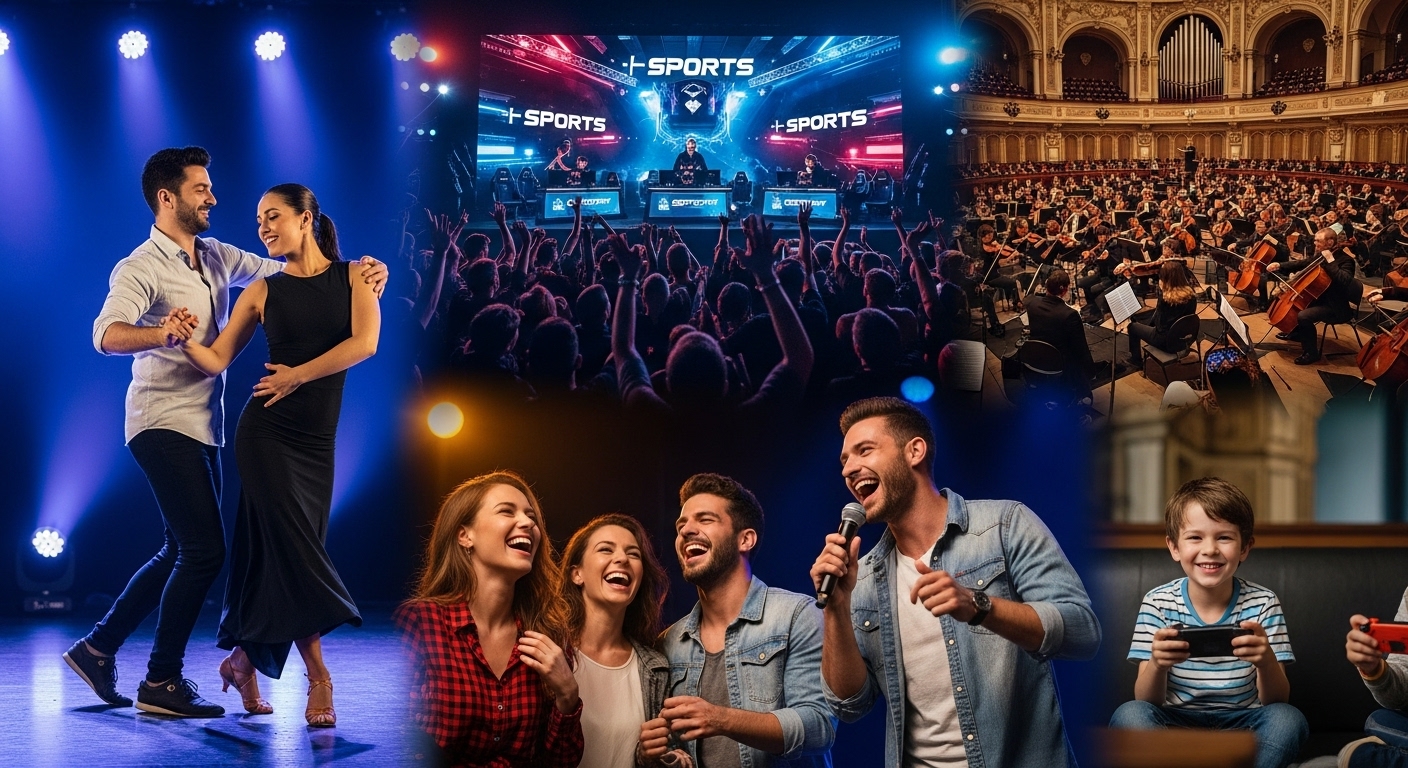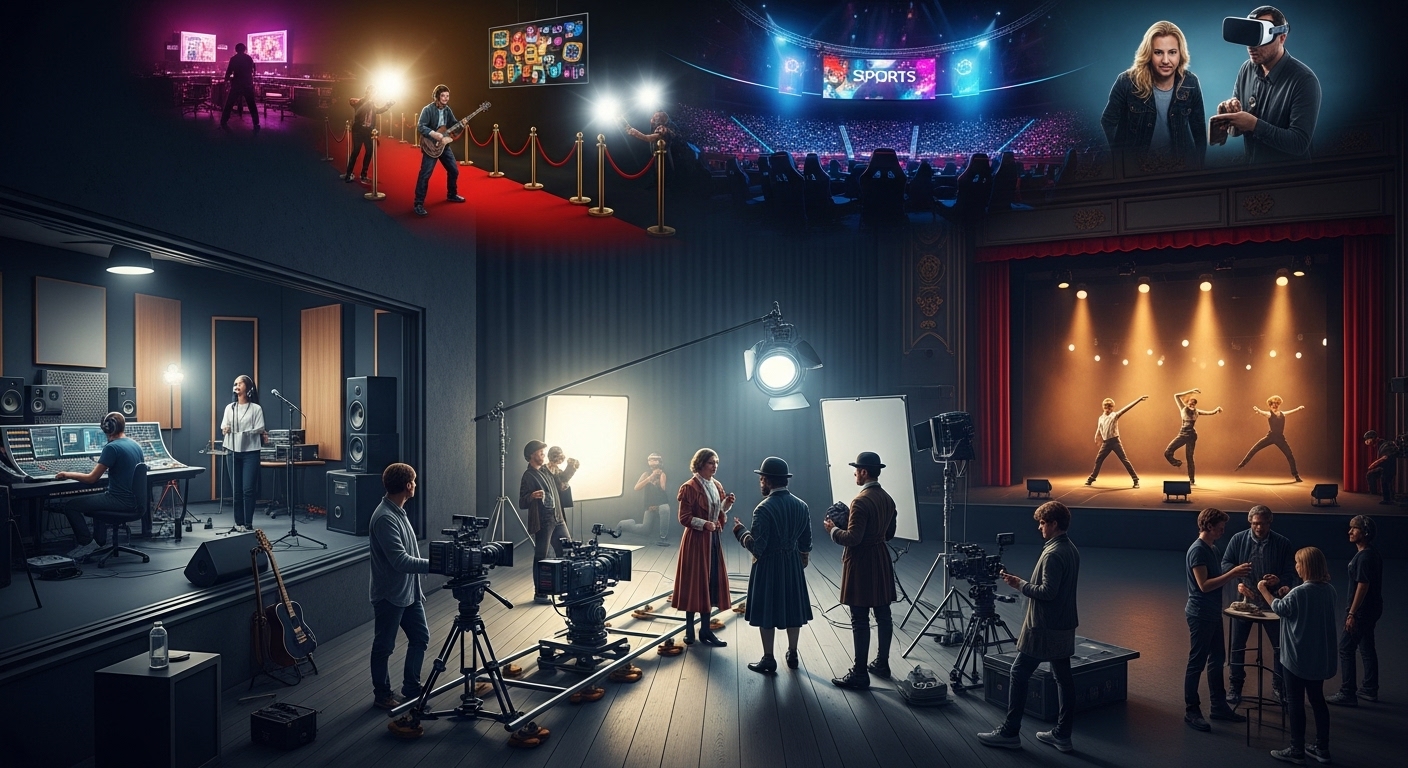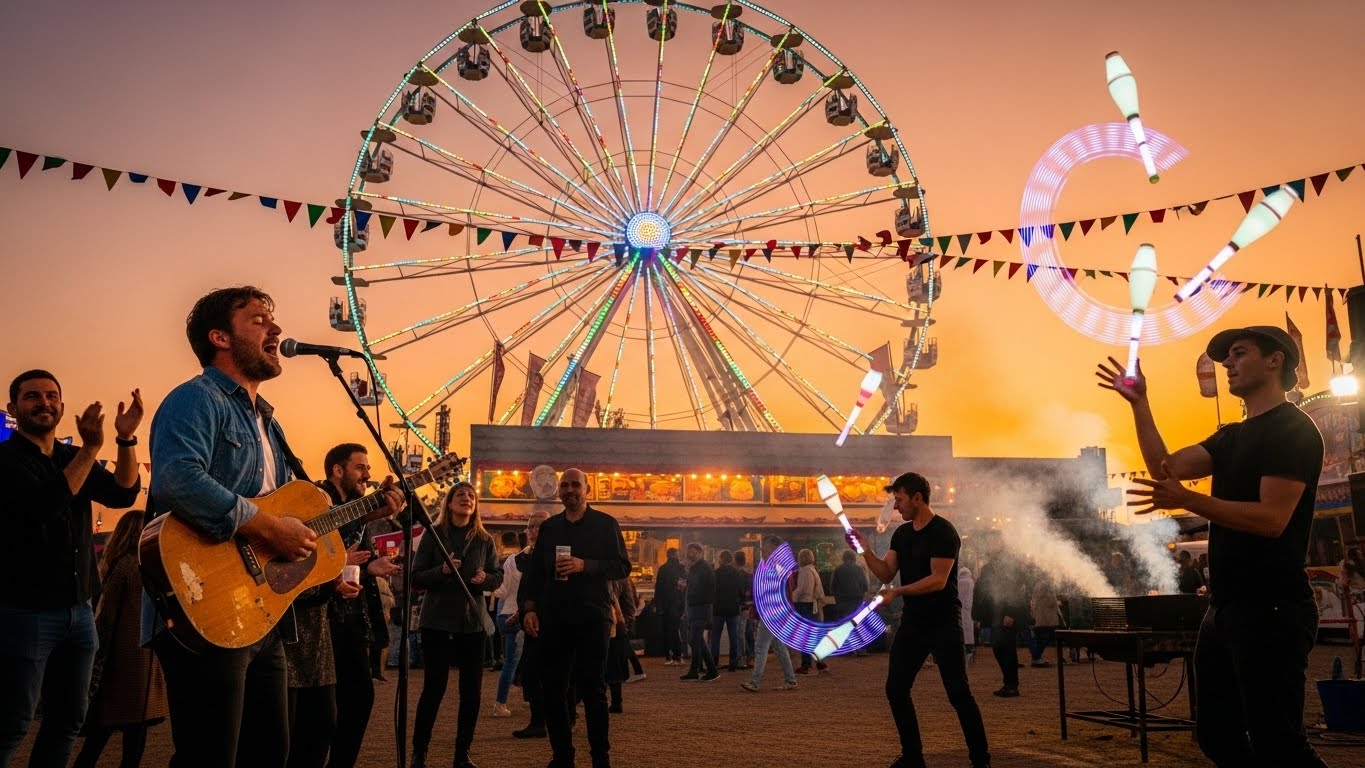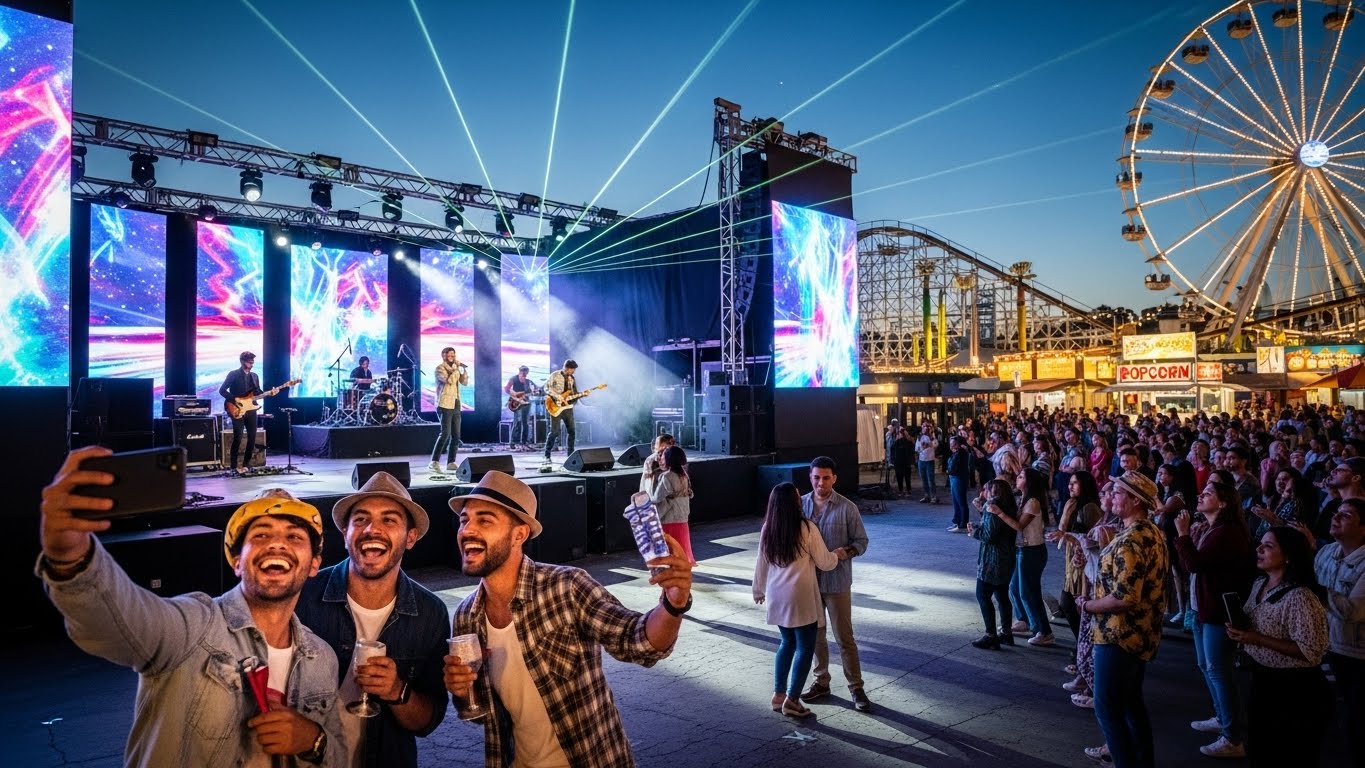The Endless Magic of Entertainment: How Stories, Music, and Performance Shape Our Lives

Entertainment is one of the oldest and most powerful forces that connect people across time, culture, and geography. From the first stories told around campfires to today’s digital streaming platforms, entertainment has been the heart of human expression. It reflects our emotions, our fears, our dreams, and our need to connect. Whether through music, movies, theatre, games, or the internet, entertainment has evolved alongside us, shaping societies and influencing generations. It is more than a distraction; it is a mirror of who we are and what we aspire to be.
The Roots of Human Entertainment
Long before technology or modern media, early humans found joy in storytelling and rhythm. Ancient civilizations entertained themselves through songs, dances, and dramatic reenactments of myths and battles. Storytelling served both as education and amusement, preserving traditions and beliefs. In ancient Egypt, Greece, and Rome, public performances and plays brought communities together, blending art with social commentary.
Music, too, was a central part of ancient life. It celebrated love, worship, and victory, expressing emotions beyond words. Drums, flutes, and lyres echoed through the early streets of civilization, creating moments of shared emotion. Over time, these primitive forms of entertainment grew into structured art forms, giving birth to theatre, literature, and performance art as we know them today.
The Golden Age of Theatre and Performance
Theatre was humanity’s first formal stage of entertainment. In ancient Greece, playwrights like Sophocles and Aristophanes crafted tragedies and comedies that explored the human condition. Audiences filled amphitheaters to watch tales of gods, heroes, and flawed mortals. This love for live performance never faded. During the Elizabethan era, theatre flourished again, giving rise to legendary figures like William Shakespeare, whose works still influence storytelling centuries later.
The art of live performance carried a unique power. Unlike film or television, every show was alive—different each night, shaped by the audience’s energy and the performer’s mood. Even today, concerts, theatre, and stand-up comedy thrive because of that human connection. They remind us that entertainment is not just something we consume, but something we experience together.
The Birth of Cinema and the Rise of Hollywood
The late 19th century brought one of the greatest revolutions in entertainment history: the invention of cinema. The first motion pictures were short, silent, and simple. Yet, they captivated audiences instantly. By the early 20th century, film had become a dominant cultural force. Hollywood emerged as the capital of movie magic, creating stars, genres, and dreams that transcended borders.
Silent films soon gave way to sound and color, and the world was introduced to icons like Charlie Chaplin, Marilyn Monroe, and James Dean. Movies became both art and industry, entertaining millions while shaping fashion, language, and ideals. Through wars and economic struggles, cinema provided escape and hope. It allowed people to imagine worlds beyond their reach and see their own stories reflected on the screen.
The Power of Music Across Generations
Music has always been one of the most universal forms of entertainment. It transcends language and time, touching the heart directly. From the soulful blues of the Mississippi Delta to the symphonies of Beethoven and the pop anthems of the modern era, music has evolved with each generation’s voice.
The 20th century saw the rise of radio, vinyl records, and live tours, making musicians global celebrities. Rock and roll challenged social norms, while hip-hop gave voice to marginalized communities. Pop music became a global phenomenon, blending influences from every culture. The digital age only expanded this reach. Streaming platforms and social media now allow anyone to share their sound with the world, turning unknown artists into overnight sensations.
What makes music timeless is its emotional truth. It has the power to comfort, inspire, and unite people in moments of joy and struggle alike. From protest songs to romantic ballads, music captures the heartbeat of every era.
Television and the Age of Shared Screens
When television entered homes in the mid-20th century, entertainment became a daily ritual. Families gathered to watch the evening news, sitcoms, and live events. Television redefined fame and brought the world closer together. It turned sports, politics, and performance into shared cultural moments. Iconic shows like I Love Lucy or Friends shaped humor and lifestyle for decades.
As television evolved from black-and-white to color and from antennas to streaming, its impact deepened. The small screen became a window to the world, showing not just fiction but reality—documentaries, talk shows, and live broadcasts that shaped public opinion and awareness. Today, streaming services have expanded that legacy, allowing audiences to watch anything, anytime, anywhere. The storytelling has become more complex and global, blending entertainment with deeper reflections of human experience.
The Gaming Revolution and Interactive Entertainment
In the late 20th century, entertainment took an entirely new form—interactive. The rise of video games transformed how people engage with stories and competition. From the early arcade classics like Pac-Man and Space Invaders to modern masterpieces like The Legend of Zelda or The Last of Us, gaming evolved into one of the most powerful industries in entertainment.
Unlike film or TV, video games invite players to shape the outcome. They offer immersion, creativity, and challenge, allowing people to live out adventures, build cities, or explore new worlds. With online play, gaming also created global communities. Esports tournaments now fill stadiums, and millions tune in to watch players compete at the highest levels.
Gaming represents a deeper trend in entertainment—participation. People no longer just watch; they play, create, and share. The boundaries between creator and audience continue to blur as technology allows more interactivity.
The Internet and the Democratization of Entertainment
The internet changed everything about how we experience entertainment. It gave everyone a stage, a voice, and an audience. Platforms for video sharing, social media, and streaming turned ordinary people into influencers, comedians, and artists. No longer was entertainment controlled by studios or networks; it became a global conversation.
Online creators reshaped humor, music, and storytelling. Memes became a modern art form, while fan communities shaped entire franchises. The rise of digital entertainment also made content accessible to people who once had no access to theatres or cinemas.
This digital revolution blurred cultural lines, too. A K-pop song could top charts in America; a Spanish-language show could dominate global streaming lists. The internet made entertainment truly international, connecting fans across borders.
The Art of Storytelling in Modern Entertainment
At the heart of every form of entertainment lies one thing: storytelling. Whether it’s a film, a novel, a song, or a video game, stories move people. They allow us to explore who we are and what matters to us. Modern entertainment thrives on storytelling that reflects diversity, identity, and complexity.
Audiences today crave authenticity and depth. They want to see themselves represented on screen, to hear voices that were once ignored. This shift has led to a renaissance in creative expression. Independent films, niche series, and unique games now find passionate audiences worldwide.
Great entertainment balances fantasy with truth. It lets us escape while also teaching us something about our world. That’s why certain stories endure for generations—because they speak to something universal within us.
The Role of Technology in Shaping the Future of Entertainment
Technology continues to push the limits of imagination. Virtual reality, augmented reality, and artificial intelligence are transforming how stories are told and experienced. Viewers can now step into the worlds they once only watched. AI can compose music, write scripts, and even generate art, raising both excitement and debate about creativity’s future.
The fusion of entertainment and technology has also redefined personalization. Streaming services use algorithms to recommend content, while games adapt to a player’s choices. The future promises even deeper immersion—interactive films, holographic concerts, and shared virtual worlds that blur reality.
Yet even with these innovations, the core of entertainment remains human creativity. Technology may enhance it, but emotion, imagination, and storytelling are what make it resonate.
The Cultural Impact of Entertainment
Entertainment shapes how we see the world. It defines generations and gives identity to eras. The 1960s had its rock revolution; the 1980s had its cinematic heroes; the 2000s brought digital communities. Through every shift, entertainment has reflected social values and sometimes challenged them.
Movies, music, and games can inspire change. They can raise awareness, foster empathy, and break barriers. A powerful performance or song can move millions, spark dialogue, and build understanding across divides. Entertainment, in that sense, is both mirror and catalyst—it shows us who we are and who we could be.
The Business and Globalization of Entertainment
Entertainment is also a vast global industry worth trillions. Hollywood, Bollywood, K-pop, and the global gaming market show how creativity drives economies. Behind every blockbuster or hit album are producers, marketers, and designers who bring art to audiences.
Streaming and digital distribution have expanded markets further. Artists can now reach fans directly, while local cultures find global appreciation. The success of global entertainment also highlights the growing demand for diversity and originality. People no longer want the same formula; they seek authenticity and innovation.
The Future of Entertainment: Connection Over Consumption
As entertainment continues to evolve, one trend stands out—connection. The audience is no longer passive. Fans interact, create, and build communities around what they love. Live streams, fan art, and online discussions turn entertainment into a shared experience.
The future will likely see even more personalized and immersive forms of engagement. Virtual concerts, interactive films, and community-driven storytelling are already shaping tomorrow’s landscape. But amidst all change, the purpose remains the same: to bring joy, meaning, and connection through creativity.
Conclusion: Why Entertainment Will Always Matter
Entertainment is more than an industry or pastime—it is the lifeblood of human culture. From ancient stories carved in stone to virtual worlds crafted in code, it captures our evolution as dreamers and creators. It reminds us that even in a world of constant change, our need for stories, laughter, music, and art remains unshakable.
As technology advances and media evolves, the essence of entertainment will endure—the desire to feel, to imagine, and to connect. Whether through a melody, a film, or a performance under bright lights, entertainment continues to unite us in our shared humanity, proving that no matter how the world changes, the joy of being moved by a story will never fade.



